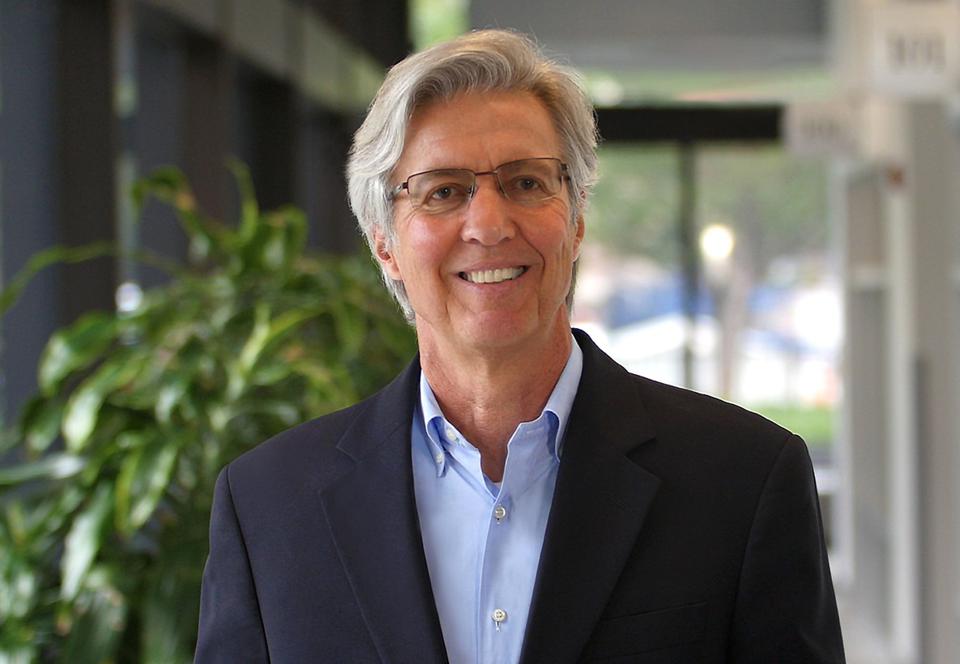
PSEG (NYSE: PSEG) is a diversified energy company headquartered in Newark, N.J., one of the ten largest energy companies in the U.S., and part of the Fortune 500.
I spoke with Ralph Izzo, Chairman, President and CEO, an advocate for reducing the negative impact of climate change.
This interview has been condensed and edited for clarity.
Karen Walker: I have heard you say that climate change is the preeminent challenge of our time. You lead a large utility, what have you done to address this issue?
Ralph Izzo: At the highest level, we’ve articulated a future where we believe our primary obligation is to help customers use less energy. This issue doesn’t get the attention it deserves. It’s the one way that you can help customers lower their bills and do less damage to the environment at the same time. Unfortunately, the laws of physics don’t allow you to get to the point where people are not using any energy.
The question then is, what energy gets used? And our answer is that we have got to use energy that is cleaner than ever before. Maybe when I was a child, clean meant that tiny soot particles shouldn’t be in the air, but nowadays, it also means we can’t emit carbon dioxide.
Sadly, we haven’t done either of those to the extent that we need to do them. Therefore, we have to build a new infrastructure or modify the infrastructure to adapt to the realities of climate change.
So at a high level, that’s what we’ve done, and beneath each one of those objectives are specific actions that we will take.
We’re now spending $300-plus million a year in our efficiency programs, up from $40 million.
Because of the infrastructure investments we made after Superstorm Sandy, Hurricane Ida was not as big a deal for us as it would have otherwise been. Our infrastructure was more resilient.
We’ve been thoroughly engaged in the public policy process, just to try to inform the debate.
Even though you’ve correctly quoted me about climate change, I know that although the statement would be viewed as true by a good percentage of the population, that’s not the full population.
If I modified it slightly, I think it would be embraced by virtually everyone. Simply modify it by saying it’s one of the preeminent challenges. Because for some people, it is healthcare, for others it’s access to quality education, for others it’s gender parity or just simply social justice issues.
I don’t want to be dismissive of those issues. But I don’t want climate change to fall off the radar.
Walker: I know you’ve recently sold off or made plans to sell off your non-nuclear generating assets.
Izzo: We’ve done a couple of things related to climate change but others related to investor appetite. We shut our coal plants in New Jersey and Connecticut, and the planet breathed a sigh of relief.
We have a fleet of gas plants, however, that vastly outnumbered those coal plants. We had to decide whether they were suitable for us. And we concluded that they weren’t for the two reasons that I’ve already suggested. One, we were making a significant effort to feature climate change and our response to it. And number two, they operated in a competitive arena that is very much a cyclical commodity business. Most utility investors are not particularly excited about risks.
So we opted to sell them. I don’t want to be anything other than entirely accurate. The planet did not breathe a sigh of relief when we did that. Those plants are still active.
The short answer was the decisions needed to serve two masters. One was to help this pursuit of a climate-friendly company, and the second was to have a better fit of our operations with the expectations of our investors.
Walker: I know you’re on the record as being a big proponent of the carbon tax. Treasury Secretary Yellen is also a proponent, and the American Petroleum Institute just endorsed it. Why do you think carbon tax is the correct answer?
Izzo: I believe there are two different approaches. One – cap and trade – starts with science and ends up with a market price. The other – a carbon tax – starts with a market price and ends up with an operational outcome.
Even though I’m a massive fan of a carbon price, I wouldn’t want to come across as saying that it should get in the way of the other things that people are doing.
Congress is making great progress. It is terrific to hear Congress discussing technology neutral production tax credits that will benefit solar and wind transmission.
We should create government programs to make the market behave in ways that it won’t act on its own. Now, why won’t the market behave on its own? Because the damage from climate change is a classic case of an externality, it is something that the market can’t predict or price.
Let’s all settle for half a loaf, for a quarter or three-quarters of a loaf. We need to start. We should not do anything to deter progress.
You also have a net-zero goal by 2030 – which I applaud but seems ambitious for a highly complex system. How did you arrive at 2030?
We originally had a long timeline, 2046. We realized that that was not good enough. So, we challenged ourselves in multiple ways.
We adjusted the date to 2030.
We went from an 80% reduction in our fossil fuel generating operation goal to net zero, not only in our power generation but in our utility as well.
So, we expanded from power generation to the whole company – and we also expanded our scope. We’re striving to achieve net zero by 2030 in our direct emissions and our indirect emissions.
It’s a whole spectrum of activity from how we use energy to how we deliver power, to how we produce it, and how our customers use it.
Walker: You’re leading an organization that has 118 -year history. Many of the employees have been with you for a long time, which speaks well to many parts of the organization. But I imagine there has been some accelerated culture change going on in the last several years. How did you encourage that change? What’s next?
Izzo: The most significant part of the culture change has been born from two societal trends that we’re embracing. One is a fundamental shift in demographics. For a century, we were a company that was male and Caucasian.
As I said earlier about our best chance of carbon reductions, we need to take advantage of the full range of activity across the economy. My philosophy is that the only way we can be the best is if we don’t limit ourselves in any way, shape or form – in terms of the suppliers, employees and the organizations with which we interact.
We’ve had a primary drive behind diversity, equity and inclusion as something that needs to be embraced. It follows that we need to engage the employees. We can’t afford to have anyone sitting around a table who might have a good idea and isn’t willing to express it.
The second trend is the pace at which technology is changing. We need to recognize that. I joke about the fact that if Alexander Graham Bell were alive today, he would think that thousands of years had elapsed since he passed away, if he were to see how we communicate.
But if Thomas Edison were alive today, he would think that he had just awoken from an afternoon nap. He would see many of the same poles that were in the street when he was an inventor.
One of our most significant challenges is that we haven’t embraced is the digitalization of our relationship with the customer and our ability to assess and manage the grid. Machine learning and computing science have given birth to an ability to analyze data. We need to take advantage of it.
As a 100-year-old company, we have cultural norms that we will always embrace.
Our employees fundamentally believe that they are performing a public service which is embodied in our name: PSEG stands for Public Service Enterprise Group. When we tried to change the name of this company, 15 or 20 years ago, we had the nearest thing to employee mutiny that you can imagine.
We commissioned a group of industrial psychologists to try to understand what was going on, and what came back loud and clear from the employees was, “No, don’t change the name. I have a deep sense of public service. That’s why I work here.”
“That’s why, after I ensure that my home is secure from a storm that’s coming, I get in the car to report to work.”
“A sense of public service motivates me as an employee of this company. If my ability to serve my neighbor is enhanced by working alongside people who don’t look like me anymore and don’t come from the same background, then I will do that. If my ability to serve my neighbor comes from moving away from mechanical meters to something that electronically communicates to some new technician in the basement of our home office, then let’s go ahead.”
I’ve seen this behavior displayed so many times in our company. I think those cultural shifts rest on the company foundation that identifies with public service.
